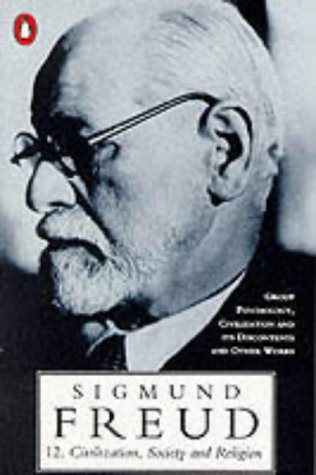
There may be moments - such as his theory about not peeing on fires - when your scepticism or sense of offence is aroused but there is much more that is unarguably to the point. That is an insight it is worth paying to know, and is typical of the hard clarity of Freud's essay.

After St Paul had made universal brotherly love the foundation of his Christian community, the extreme intolerance of Christianity towards those left outside it was an inevitable consequence." For the notionally civilising influence of Christianity, he reserves his most exquisite scorn: "Unfortunately all the massacres of Jews that took place in the Middle Ages failed to make the age safer and more peaceful for the Christians. "We have taken care not to concur with the prejudice that civilisation is synonymous with a trend towards perfection," he notes laconically. Or, indeed, why civilisation is just as likely to lapse into psychosis as not, a development which in Freud's part of the world was to happen in fairly short order.

This great cultural conquest would thus be the reward for forgoing the satisfaction of a drive."Īll else follows from this and this is why, even at a time of unprecedented technological mastery, people are still no happier than they ever were. "By damping down the fire of his own sexual excitement he had subdued the natural force of fire. When away from the couch or the consulting room, he was as penetrating and beguiling a thinker as Montaigne.įreud's considered starting-point for civilisation comes at that moment when primitive man decided, after unusually careful deliberation, not to put the fire out by peeing on it, but to allow it to keep burning. Those who decry the Freudian technique as far as our interior mental landscapes go would do well to remember that, whatever his flaws as a scientist, he was a first-rate essayist. This, written in 1930, on the eve of destruction as it were, is a summary of Freud's beliefs, the potted essence of his system as applied to the broad picture. There comes a point in one's existence, after all, at which one begins to suspect that any book that could not be renamed or sub-titled Civilization and its Discontents is going to be more or less a complete waste of time. Not only because it has hitherto not been easy to get hold of a copy, but because it quite simply tells you all you really need to know about life and its vicissitudes.

I choose Freud's Civilization and its Discontents to be the book that accompanies me in this way.


 0 kommentar(er)
0 kommentar(er)
